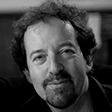Last summer Robert Rickard FRSA, curious for some kind of Covid-19 revelation, dipped back into Albert Camus’s The Plague (La Peste, 1947). He argues that this classic French novel may be much less trendy now but offers unexpected insights into the world event of the 21st Century.
Compared with most mortals, Camus (1913-1960) was exceptional: a swimmer, goalkeeper, tuberculoid, Algerian slum boy, resistance fighter, compulsive lover (with film star looks), philosopher, novelist, playwright and the second youngest winner of the Nobel Prize for Literature at 44. He wrote The Plague during World War II, by which time he was already well-known and was editor of a Resistance newspaper in Paris. Camus was killed in a high-speed car crash at the age of 47.
The Plague, which remains his best-known work after The Outsider, won him the Nobel Prize and was the work he said came to him the most ‘naturally’. The novel spends 300-plus pages intimately describing the thoughts and torments of four fictional Frenchmen, living (or ‘existing’) through a fictional bubonic outbreak in the (real) city of Oran, Algeria.
Usually supposed to be an allegory for Nazi ‘plague’, even Camus’s high-profile friends –Sartre, Simone de Beauvoir et al – thought epidemic a weird choice of subject, especially with the most brutal war in history raging: why pile unrelated misery onto six years of world-suffering? Living under Nazi rule in Vichy France, Camus had to be careful but the novel was published two years after the war’s end. Now, 75 years on, any political disguise seems to have faded, and the novel works most compellingly as a tableau of humans rising to the challenge of a shared natural threat: as a ruthless account of collective suffering, without any need for added allegory.
Camus was much trendier when older RSA readers might first have come across him. He was part of an intellectual world that somehow explained the hippy era, Paris 1968 and so on and was often set for A’ level in the1970s. At 18, I was enthralled by the plot, by existential angst and by someone ranging seamlessly between forms. The Plague still reads well as philosophy and documentary, but – for me, best of all – as compelling fiction. Dr Bernard Rieux, its quiet hero, is a world-weary observer whose ceaseless support for his plague-victims (friends and foes) now carries reminders of more recent ‘NHS heroes’.
But does The Plague make a good ‘Rough Guide to Covid-19’? Emotionally, yes: hygiene restrictions seem a bit less rigorous than ours (little mention of face covering, none of ‘social distancing’ and so on), but other aspects – empty streets, curfews, lockdowns, even a homemade vaccine rollout – feel all too familiar. People wander quietened streets at odd hours of day or night, encountering heightened birdsong and acts of generosity (even a homemade vaccine that works). Ordinary people – somehow, weirdly – muddling through. Camus shows we are not the only ones who have had to cope with numbing apartness from our fellow humans; Rieux reveals a cool warm-heartedness to counterpoint the very grimness from which he never flinches. All this is oddly heartening, this plague-time around.
Camus’ account of his plague is graphic; neighbours railing against each other, mass unemployment and a kill rate much closer to Ebola’s 40%; only one character recovers before the end. We encounter vicious bubonic symptoms, bursting glands and such draconian quarantining measures that families try to conceal or deny outbreaks.
Like us, Camus’ concitoyens, his citizens, know no end: they too feel isolated in their immediate environs and muse how long la peste might last. Surprisingly, perhaps, they don’t seem much less trapped than modern ‘zoom-converts’; a visiting journalist, Rambert, ends up imprisoned in Oran alongside everybody else, the odd brief telegram is all he can send his lover.
The cruel ebbs and flows of the novel are what keep me engaged. Partly, this is because we can’t help asking ourselves the same subconscious questions about the action: Who will survive? Will there be any meaning to the random suffering? Will anyone ever smile again? But there is honesty about the way the ironising Rieux faces the sheer lack of meaning in a plague in scene after scene of casually crafted brutality.
Right from the start, Camus dissects the precise cause: we humans cannot suddenly re-imagine, let alone accept, the idea of our lives upturned by total calamity. People play the emerging plague down, as does their government, which worries most about public unrest, and under-reacts: ending up looking inept. Sound familiar? Rieux accepts this mistake as quite natural: how can we choose to contemplate the overthrow of life’s certainties, even if we wanted to? Once the fatalities become too great, Oran is blockaded to prevent further spread of the disease, and curfew declared; but many are still in denial.
The Plague was the first post-war novel to try and answer the type of ‘existential’ question Camus had himself posed, most concisely, in his brilliant 1942 essay The Myth of Sisyphus: how do we survive the most brutal aspects of modern secular life, without the crutch of a god? The story does the lifting. Individual suffering is always dwelt on in matter-of-fact – yet exquisite – detail. Rieux is angry with the Catholic priest who sermonises eloquently on the plague as divine punishment, and makes him witness a child’s protracted, innocent suffering.
Camus in real life lived outrageously: his affairs gave his second wife a breakdown, and he loved four women simultaneously, at the time of the car accident; yet his writing is all control and care. From such compelling suffering, he arrives at fine, carefully wrought, philosophical conclusions. Rieux decides he only has time left to live, to explore, that love and hope was what made life in the world bearable; the obstinacy of Existentialism itself.
For Camus – perhaps for us – the human lot, is to carry on rolling boulders up hills. And this is no facile ‘message’ for a modern reader; wrestling with life post-Covid-19 the prose fits the facts of existence, and we may in such moments feel what Camus felt as his narrator senses the still-lurking danger.
As I write, I am conscious some parts of the western world another (real) pandemic appears to be waning. But in both Camus’ version and our experience, any relief is tempered by the sense of a sleek invisible monster at our doors that may or may not, slip away. The Plague offers a poetically human guidebook as to how to respond to the challenges of forces well beyond us.
Rieux’s conclusion? The rats are always with us: plague will always recur. Our neat little lives will always at some point be turned upside down. Without a god to protect us, we swim in the sea at our peril but we still want to swim in the sea.
Robert has had a varied educational career: inspector, examiner, consultant and teacher of English, including in prisons and private schools, state comprehensives, colleges and, for and for 20 years, with the Open University. He is currently writing an evaluation of the Cambridge poet, Arthur Sale and is fascinated by the Existentialism of the suburbia he grew up in.
Related articles
-
Introducing the Fellowship Promotion Guide
Fellowship news
Fionna Monk
Our brand-new Fellowship Promotion Guide is a powerful new resource designed to make it easier than ever for current Fellows and staff to share the value of the RSA Fellowship with others.
-
Why 2025 is an exciting year to be an RSA Fellow
Fellowship news
Fionna Monk
Happy New Year! 2025 is shaping up to be a landmark year for the RSA Fellowship, brimming with new opportunities, initiatives, and global collaborations. There’s never been a more exciting time to be part of this dynamic and engaging community. Here’s more on why this year promises to be an inspiring and impactful year for RSA Fellows worldwide.
-
Counting the cost of bowling alone
Blog
Andy Haldane
In his 2025 CEO Lecture, Andy Haldane addresses how the ever-increasing cross-border flows of goods, people and information affect widening divisions and accelerate the depletion of social capital.




Join the discussion
Comments
Please login to post a comment or reply
Don't have an account? Click here to register.
I'm informed and intrigued - thank you! It's going on the reading list straight away.